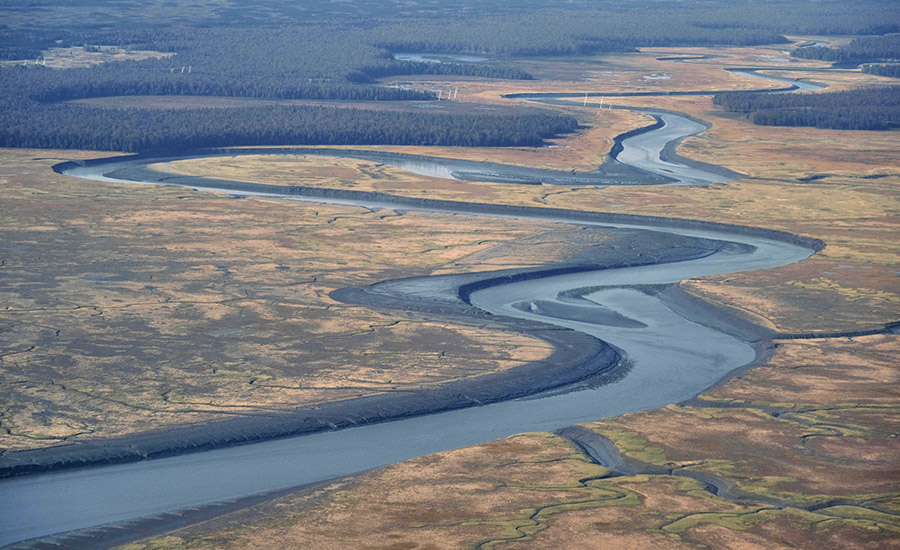The U.S. Environmental Protection Agency has blocked development of Pebble Mine, a large open pit gold and copper mine in Alaska's Bristol Bay area, claiming its dredge and fill disposal would harm one of the world's most environmentally sensitive and valuable wild salmon fisheries.
EPA final determination under the federal Clean Water Act bans disposal of mine waste in a portion of the bay’s watershed under Section 404C of the law, the agency said Jan. 3—noting that the mine action is only the third time it has used such authority to veto a project. The clean water law provision allows EPA to restrict discharges of dredge and fill material into waters of the U.S.
The final determination limits use of the Bristol Bay watershed waters as disposal sites for the proposed mine.
The mine’s developer says it plans to challenge the determination in court, continuing a legal battle that spans decades.
“After reviewing the extensive scientific and technical record spanning two decades, EPA has determined that specific discharges associated with developing the Pebble deposit will have unacceptable and adverse effects on certain salmon fishery areas in the Bristol Bay watershed,” said Radhika Fox, EPA assistant administrator for water, in a statement.
John Shively, CEO of mine developer Pebble Limited Partnership, called the action unlawful. “The Biden EPA continues to ignore fair and due process in favor of politics,” he said in a statement. “This preemptive action against Pebble is not supported legally, technically, or environmentally.” The developer, a subsidiary of Canada-based Northern Dynasty Minerals Ltd., said it also violates the Alaska State Act.
“EPA’s veto sets a dangerous precedent,” Gov. Mike Dunleavy (R) said in a tweet. “It lays the foundation to stop any development project, mining or non-mining, in any area of Alaska with wetlands and fish-bearing streams.”
Decades of Litigation
Environmental groups and local Tribes have consistently fought the effort to develop Pebble Mine, with six local Tribes in 2010 asking EPA to intervene.
EPA proposed an initial 404C determination in 2014 to prevent mine waste discharge into Bristol Bay, and the Partnership sued, requesting that it be reversed. The Trump administration settled with the developer in 2017 and said it would consider reversing the determination.
The watershed, located about 200 miles southwest of Anchorage, contains large deposits of precious metals but also is environmentally sensitive because it is a breeding ground for salmon. Bristol Bay provides half the world’s wild sockeye salmon and supports 15,000 jobs, which generate $2.2 billion in economic activity every year, according to the Natural Resources Defense Council.
“The Bristol Bay watershed is a vital economic driver, providing jobs, sustenance, and significant ecological and cultural value to the region,” said EPA Administrator Michael Regan in a statement.
Marc Fink, senior attorney for the Center for Biological Diversity, called the EPA final determination a “critical step to protect the irreplaceable ecosystems of Alaska’s Bristol Bay.”
He added: "This should be the final nail in the coffin of the disastrous Pebble Mine proposal, but we’ll keep fighting until this watershed is permanently protected.”




Post a comment to this article
Report Abusive Comment